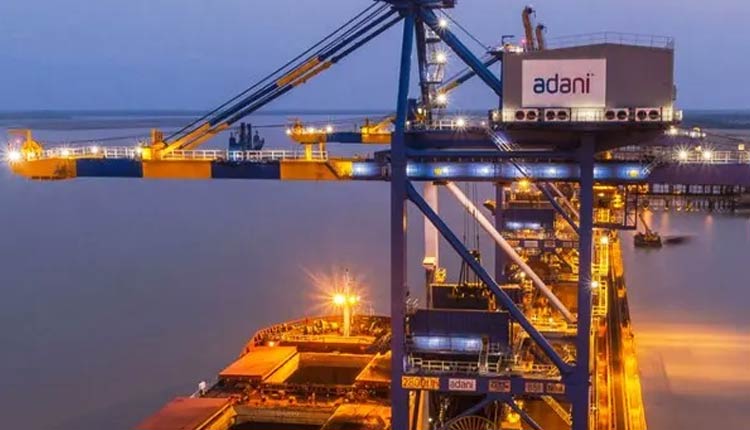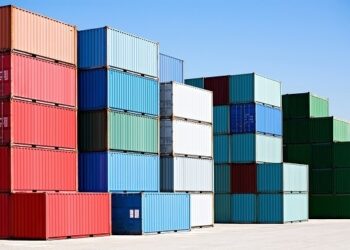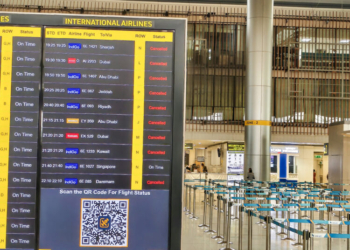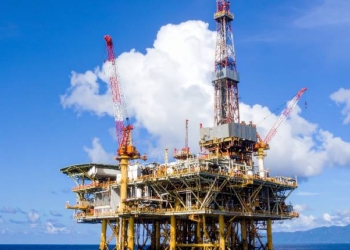New Delhi: India’s largest private port operator, Adani Ports and Special Economic Zone Ltd (APSEZ), announced earlier this month that it handled a record 420 MMT (million metric tonne) cargo in FY24 (including international ports), setting a new milestone in its journey.
It was an impressive 24 per cent growth (year-on-year), with domestic ports contributing over 408 MMT cargo.
While it took 14 years for the company to achieve the first 100 MMT of annual cargo throughput, the second and third 100 MMT throughputs were achieved in 5 years and 3 years.
Notably, the latest 100 MMT mark was achieved in less than two years’ time.
How did this impressive feat happen?
Over the years, APSEZ has evolved into a provider of integrated port infrastructure services, of which the Mundra SEZ in Gujarat is a landmark validation.
Spanning over 8,000 hectares, the Mundra Economic Hub offers investment options as the largest multi-product SEZ, Free Trade and Warehousing Zone (FTWZ) and Domestic Industrial Zone.
Mundra, the first port of APSEZ, welcomed its maiden ship in 1998. Since then, the company has built a network of 15 ports and terminals on the east and west coasts of the country.
APSEZ is currently the largest commercial port operator in India, accounting for nearly one-fourth of the cargo movement in the country. Its presence across domestic ports in seven maritime states of Gujarat, Maharashtra, Goa, Kerala, Andhra Pradesh, Tamil Nadu and Odisha presents the most widespread national footprint with deepened hinterland connectivity.
The port facilities are equipped with the latest cargo-handling infrastructure which is not only best-in-class but also capable of handling the largest vessels calling at Indian shores.
During FY24, more than one-fourth of all India cargo volumes were routed through the APSEZ ports, according to the company.
“The latest 100 MMT mark has been achieved in less than two years. This is a testament to our ongoing commitment and efforts towards enhancing operational efficiencies and maintaining our position as a top port operator in the industry,” according to Karan Adani, Managing Director, APSEZ.
Dhamra port in Odisha’s Bhadrak district has become a critical hub for dry cargo shipment in the region. Ten years ago, it handled only 14 MMT of cargo but today, its capacity has moved up to over 42 MMT.
The port can accommodate Cape Size vessels and caters to industries in Odisha, Jharkhand, and West Bengal.
Dhamra also has a liquefied natural gas (LNG) terminal of 5 MMT capacity which helps fulfil the requirements of Assam, Bihar, Odisha, Uttar Pradesh, and West Bengal.
Krishnapatnam Port is an all-weather, world-class deep water port of international standards which is capable of handling Cape Size vessels round the clock throughout the year. It has state-of-the-art infrastructure, mechanised handling systems and dedicated storage yards which provide clean and contamination-free handling facilities for bulk and break bulk cargo.
Its current capacity is 75 MMT, a significant increase from 64 MMT four years ago.
Karaikal port in Puducherry is near power plants and cement factories. In FY23, it handled nearly 10 MMT of cargo and in FY24, the figure went up to 13 MMT. Eight ports — 84 per cent of the portfolio by volume — delivered double-digit growth for the company in FY24.
Dahej Port is a deep-water, multi-cargo port located in the Gulf of Khambhat. It is strategically situated on international maritime routes and provides easy access to the dense industrial hubs of Gujarat, Maharashtra and Madhya Pradesh.
This makes it the preferred port for the cargo hubs functioning in the northern and western states and Union Territories of India.
The flagship port Mundra became the first in India to handle 16 MMT cargo in a single month (October 2023). In fact, the learnings from Mundra Port have been replicated at all other ports owned by the company.















